- Home
- Harlan Coben
Six Years Page 4
Six Years Read online
Page 4
I made a sandwich and tried looking up Natalie's name again, this time doing an "image" search. I saw an old bio picture of her. The image struck me hard in the chest so I clicked it off. I found some of her old paintings. Several of them were of my hands and torso. Painful memories didn't just ease back in--they shoved the door open hard, all of them and all at once. The way she tilted her head, the way the sunlight burst through the skylight of her studio, that look of concentration on her face, the playful smile when she took a break. The memories almost made me double over in pain. I missed her that much. I missed her with an ache that was physical and something beyond. I had blocked it on and off for six years, but suddenly the longing had flooded back, as strong as the day we last made love in that cabin at the retreat.
Screw it.
I wanted to see her and be damned the consequences. If Natalie could look me in the eye a second time and dismiss me, well, I would deal with it then. But not now. Not tonight. Right now, I simply needed to find her.
Okay, slow down. Let me think this through. What do I need to do here? First, I have to figure out if Todd Sanderson is Natalie's Todd. There was plenty of evidence to suggest, as Benedict had clearly explained, that this was simply a case of mistaken identity.
How should I go about proving it one way or the other?
I needed to know more about him. For example, what would Dr. Todd Sanderson, happily married father of two living in Savannah, be doing at an artist retreat in Vermont six years earlier? I needed to see more pictures of him. I needed to do more background, starting . . .
Starting here. At Lanford.
That was it. The school still maintains every student file, though they can only be viewed by the student or with the student's permission. I looked at my own a few years back. For the most part, there was nothing remarkable, but my professor in freshman year Spanish, a class I ended up dropping, suspected that I had "adjustment" problems and perhaps could benefit from seeing the school psychologist. That was crap, of course. I was terrible at Spanish--foreign languages are my academic Achilles' heel--and you're allowed a freshman drop to maintain your GPA. The note had been in the professor's own handwriting, and that somehow made it worse.
The point?
There could be something in Todd's file, if I could figure a way to finagle it, that would tell me something about him. You might ask, "Like what?" I might reply, "I have no friggin' idea." It still felt like a place to start.
So what else?
The obvious: Check in on Natalie. If I found her still happily married to her Todd, I would be able to drop this immediately. That was the most direct route here, wasn't it? The question was, how?
I continued an online search, hoping to stumble across an address or a clue, but there was absolutely nothing. I know that we supposedly live our entire lives online nowadays, but I have found this not to be the case. If a person wanted to stay in the shadows, they could. It took effort, but you really could remain off the grid.
The question might be, why would you expend the effort?
I debated calling her sister, if I could find the number, but what exactly would I say? "Hi, uh, this is Jake Fisher, your sister's old, uh, fling. Um, did Natalie's husband die?"
That might be a tough approach.
I remembered listening to a phone conversation between the two sisters where Natalie gushingly told Julie, "Oh man, wait till you meet my wonderful boyfriend . . ." And, yep, we did eventually meet. Sort of. At Natalie's wedding to another man.
Her father was dead. Her mom, well, that would be the same problem as with the sister. Friends of Natalie's . . . that was an issue too. Natalie and I had spent our time together in retreats in Kraftboro, Vermont. I was at one to write my political science dissertation, Natalie was doing her art at the neighboring farm-cum-retreat. I was supposed to stay six weeks. I stayed double that because, one, I met Natalie, and two, I lost focus on my writing after I met Natalie. I had never visited her hometown in northern New Jersey, and she had only come to campus for one brief visit. Our relationship had stayed in that Vermont bubble.
I can almost see the head nods now. Ah, you think, that explains it. It was a summer romance, built in an unreal world of no responsibilities or reality. Under those conditions, it is easy for love and obsession to bloom without taking root, only to wither and die when the cold of September rolled around. Natalie, being the more insightful of us, saw and accepted that truth. I did not.
I understand that sentiment. I can only say that it is wrong.
Natalie's sister's name was Julie Pottham. Six years ago, Julie had been married with an infant son. I looked her up online. This time, it didn't take long. Julie lived in Ramsey, New Jersey. I wrote down the phone number on a slip of paper--like Benedict, I can be old-school--and stared at it. Outside my window I could hear students laughing. It was midnight. Too late to call. It might be best to sleep on this decision anyway. In the meantime, there were papers I needed to correct. There was a class tomorrow I had to prepare for. There was a life I had to lead.
*
There was no point in trying to sleep. I focused on the student essays. Most were numbingly tedious and expected, written as though to fit a high school teacher's rote specifications. These were top-level students who knew how to write "A+" high school papers, what with their opening paragraph, introductory sentences, supportive body, all that stuff that makes an essay solid and ridiculously boring. As I mentioned earlier, my job is to get them to think critically. That was always more important to me than having them remember the specific philosophies of, say, Hobbes or Locke. You could always look those up and be reminded of what they were. Rather, what I really hoped was my students would learn to both respect and piss all over Hobbes and Locke. I wanted them to not only think outside the box, but to get to that outside by smashing the box into little pieces.
Some were getting that. Most were not as of yet. But, hey, if they all got it right away, what would be the point of my job?
At around four in the morning I headed to bed to pretend that sleep would find me. It didn't. By 7:00 A.M., I had made up my mind: I would call Natalie's sister. I remembered the robotic smile in the white chapel, the pale face, the way Julie asked me if I was okay, as if she truly understood. She might be an ally.
Either way, what did I have to lose?
It had been too late to call last night. It was too early now. I showered and got ready for my 8:00 A.M. Rule of Law class over in Vitale Hall. I would call Natalie's sister as soon as class ended.
I expected to sleepwalk through the class. I was obviously distracted and, let's face it, 8:00 A.M. was too early for most college students. But not today. Today the class was beyond lively, with hands shooting up, points and counterpoints worded strongly but with no animosity. I took no sides, of course. I moderated and marveled. The class was in the zone. Usually with the early class, the clock's minute hand moved as though bathed in syrup. Today I wanted to reach up and grab that stupid hand and stop it from flying forward. I loved every moment. The ninety minutes passed in a blur, and I realized yet again how lucky I was to have this job.
Lucky in occupation, unlucky in love. Or something like that.
I headed to my office at Clark House to make the phone call. I stopped at Mrs. Dinsmore's desk and awarded her my best charm-yer-pants-off smile. She frowned and said, "That work with single women nowadays?"
"What, the charming smile?"
"Yeah."
"Sometimes," I said.
She shook her head. "And they say not to worry about the future." Mrs. Dinsmore sighed and straightened out some papers. "Okay, pretend you got me all hot and bothered. What do you want?"
I tried to shake away the hot-and-bothered image. It wasn't easy. "I need to get ahold of a student file."
"Do you have the student's permission?"
"No."
"Ergo the charming smile."
"Right."
"Is this one of your current students?"
/> I reloaded the smile. "No. He was never a student of mine."
She arched an eyebrow.
"In fact, he graduated twenty years ago."
"You're kidding, right?"
"Do I look like I'm kidding?"
"Actually, with that smile, you look kind of constipated. What's the student's name?"
"Todd Sanderson."
She sat back and crossed her arms. "Didn't I just read his obituary on the alumni page?"
"You did."
Mrs. Dinsmore studied my face. My smile was gone. A few seconds later, she slipped her reading glasses back on and said, "I'll see what I can do."
"Thank you."
I headed into my office and closed the door. No more excuses. It was nearly 10:00 A.M. now. I took out the piece of paper and looked at the number I'd jotted down last night. I picked up the phone, hit the button for an outside line, and dialed.
I had rehearsed what I would say, but nothing had sounded sane, so I figured that I would play it by ear. The phone rang two times, then three. Julie probably wouldn't answer. No one answered home phones anymore, especially when they came from an unfamiliar number. The caller ID would show Lanford College. I didn't know if that would encourage or discourage answering.
On the fourth ring, the phone was picked up. I gripped the receiver tighter and waited. A woman said a tentative "Hello?"
"Julie?"
"Who is this please?"
"It's Jake Fisher."
Nothing.
"I dated your sister."
"What's your name again?"
"Jake Fisher."
"Have we met?"
"Sort of. I mean, we were both at Natalie's wedding--"
"I don't understand. Who are you exactly?"
"Before Natalie married Todd, she and I were, uh, seeing each other."
Silence.
"Hello?" I said.
"Is this a joke?"
"What? No. In Vermont. Your sister and I--"
"I don't know who you are."
"You used to talk to your sister on the phone a lot. I even heard you two talking about me, in fact. After the wedding, you put your hand on my arm and asked me if I was okay."
"I have no idea what you're talking about."
I was gripping the receiver so tight I feared it might shatter. "Like I said, Natalie and I dated--"
"What do you want? Why are you calling me?"
Wow, that was a good question. "I wanted to talk to Natalie."
"What?"
"I just wanted to make sure that she was okay. I saw an obituary for Todd, and I thought that maybe I should reach out and just, I don't know, offer my condolences."
More silence. I let it last as long as I could.
"Julie?"
"I don't know who you are or what you're talking about, but never call here again. Do you understand? Never."
She hung up the phone.
Chapter 6
I tried calling back, but Julie didn't answer.
I didn't understand. Had she really forgotten who I was? That seemed doubtful. Had I scared her with my call-out-of-the-blue? I didn't know. The whole conversation had been surreal and spooky. It would have been one thing to tell me that Natalie didn't want to hear from me or that I was wrong, Todd was still alive. Whatever. But she didn't even know who I was.
How was that possible?
So now what? Calm down, for one. Deep breaths. I needed to continue my two-prong attack: Figure out what the deal was with the late Todd Sanderson, and find Natalie. The second would, of course, negate the first. Once I found Natalie, I would know all. I wondered how to do that exactly. I had looked her up online and found nothing. Her sister, too, seemed to be a dead end. So where to go? I didn't know, but in this day and age, how hard would it be to get an address on her?
An idea came to me. I signed on to the campus website and checked the teaching schedules. Professor Shanta Newlin had a class in an hour.
I buzzed Mrs. Dinsmore.
"What, you expect me to have the file that fast?"
"No, it isn't that. I'm wondering if you know where Professor Newlin is."
"Well, well. This day gets more and more interesting. You know she's engaged, right?"
I should have known better. "Mrs. Dinsmore . . ."
"Don't get your panties in a bunch. She's having breakfast with her thesis students in Valentine."
Valentine was the campus cafeteria. I hurried across the quad toward it. It was an odd thing. A college professor always has to be on. You have to keep your head up. You have to smile or wave at every student. You have to remember every name. There was a strange sort of celebrity to walking around campus. I would claim that it didn't matter to me, but I confess that I liked the attention and took it pretty seriously. So even now, rushed and anxious and distracted as I was, I made sure that no student felt blown off.
I avoided the two main dining rooms. These were for students. The professors who sometimes chose to join them once again felt a little desperate to me. There were lines, and I admit that they are sometimes fuzzy and flimsy and arbitrary, but I still drew them and kept on my side of them. Professor Newlin, a class act all the way, would do likewise, which was why I was confident she'd be tucked away in one of the back private dining halls, reserved for such faculty-student interaction.
She was in Bradbeer dining hall. On campus, every building, room, chair, table, shelf, and tile is named after someone who gave money. Some people bristle at this. I like it. This ivy-covered institution is isolated enough, as it should be. There is no harm in letting a little real-world, cold-cash reality in every once in a while.
I peeked in through the window. Shanta Newlin caught my eye and held up a finger signaling one minute. I nodded and waited. Five minutes later the door opened and the students streamed out. Shanta stood in the doorway. When the students were gone, she said, "Walk with me. I have to be somewhere."
I did. Shanta Newlin had one of the most impressive resumes I'd ever seen. She graduated Stanford as a Rhodes Scholar and attended Columbia Law School. She then worked for both the CIA and FBI before serving in the last administration as an undersecretary of state.
"So what's up?"
Her manner was, as always, brusque. When she first came to campus we had dinner. It wasn't a date. It was a "let's see if we want to" date. There is a subtle difference. After that date, she chose not to pursue it, and I was okay with that.
"I need a favor," I said.
Shanta nodded, inviting me to make my request.
"I'm looking for someone. An old friend. I've tried all the usual methods--Google, calling the family, whatever. I can't get an address."
"And you figured that with my old contacts, I'd be able to help."
"Something like that," I said. "Well, yes, exactly like that."
"Her name?"
"I didn't say it was a she."
Shanta frowned. "Name?"
"Natalie Avery."
"When was the last time you saw her or had an address?"
"Six years ago."
Shanta kept walking, military style, ramrod back, very fast. "Was she the one, Jake?"
"Pardon?"
A small smile came to her lips. "Do you know why I never followed up on our first date?"
"It wasn't really a date," I said. "It was more a 'let's see if we want to' date."
"What?"
"Never mind. I figured that you didn't follow up because you had no interest."
"Uh, that would be a no. Here is what I saw that night: You're a great guy, you're funny, you're smart, you have a full-time job, and you have blue eyes to die for. Do you know how many single straight guys I'd met with that criteria?"
I wasn't sure what to say, so I stayed quiet.
"But I could sense it. That's part of being a trained detective, maybe. I study body language. I look for the little things."
"Sense what?"
"You're damaged goods."
"Gee, thanks."
&
nbsp; She shrugged. "Some men carry torches for old loves, and then some guys--not many, but some--get completely consumed by the torch's flames. It makes them nothing but long-term trouble for the follow-ups."
I said nothing.
"So this Natalie Avery that you're suddenly desperate to find," Shanta said. "Is she that flame?"
What would be the point in lying? "Yes."
She stopped and looked way up at me. "And it hurt bad?"
"You have no idea."
Shanta Newlin nodded and started walking away, leaving me behind. "I'll have her address for you by the end of the day."
Chapter 7
On television, the detective always goes back to the scene of the crime. Or, come to think of it, maybe it's the criminal who does that. Whatever. I was at a dead end, so I figured that I'd go back to where it all happened.
The retreats in Vermont.
Lanford was only about forty-five minutes from the Vermont border, but then you had another two hours plus to get up to where Natalie and I first met. Northern Vermont is rural. I grew up in Philadelphia and Natalie was from northern New Jersey. We didn't know rural like this. Yes, an objective observer might again point out that in such a secluded venue, love would flourish in an unrealistic way. I might agree or I might point out that in the absence of other distractions--like, say, anything--love might suffocate under the weight of too much togetherness, thus making this proof of something far deeper than a summer fling.
The sun was starting to weaken by the time I passed my old retreat on Route 14. The six-acre "subsistence farm" was run by writer-in-residence Darly Wanatick, who offered critiques of the retreatees' work. For those who don't know, subsistence farming is farming that provides the basic needs for the farmer and his family without surpluses for marketing. In short, you grow it, you eat it, you don't sell it. For those who don't know what a writer in residence is or what qualifies him or her to critique your writing, it meant that Darly owned the property and wrote a weekly shopping column in the free local paper, the Kraftboro Grocer. The retreat housed six writers at a time. Each writer had a bedroom in the main house and a shack or "work cottage" in which to write. We all met up for dinner at night. That was it. There was no Internet, no TV, no phones, yes lights, but no motorcar, not a single luxury. Cows, sheep, and chickens meandered around the property. It started out soothing and relaxing and I enjoyed that unplugged, unconnected solitude for about, oh, three days and then my brain cells began to rust and corrode. The theory seemed to be if you make an author feel this numbingly bored, he or she will flock to the salvation of his legal pad or laptop and produce pages. It worked for a while and then it felt as though I'd been placed in solitary confinement. I spent one entire afternoon watching a colony of ants carry a bread crumb across the "writer cottage" floor. So enamored was I with this bit of entertainment I strategically placed more bread crumbs in various corners in order to create insect relay races.

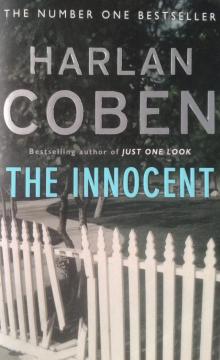 The Innocent
The Innocent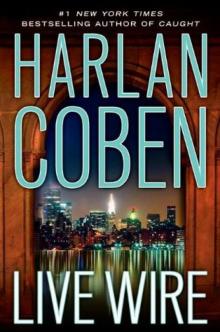 Live Wire
Live Wire Play Dead
Play Dead Drop Shot
Drop Shot Seconds Away
Seconds Away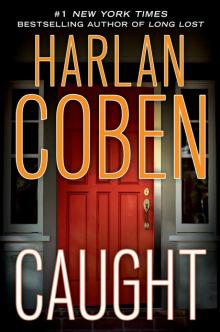 Caught
Caught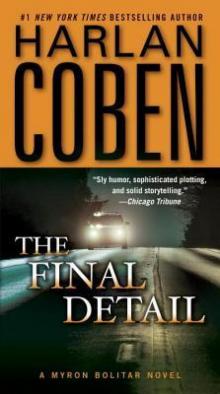 The Final Detail
The Final Detail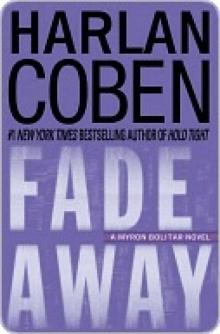 Fade Away
Fade Away Home
Home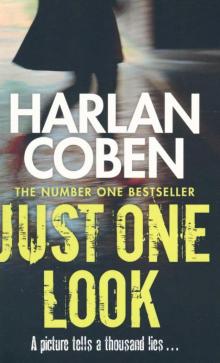 Just One Look
Just One Look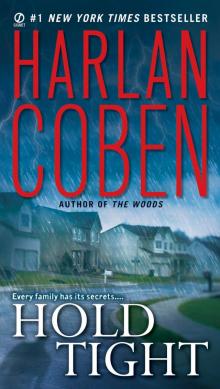 Hold Tight
Hold Tight Fool Me Once
Fool Me Once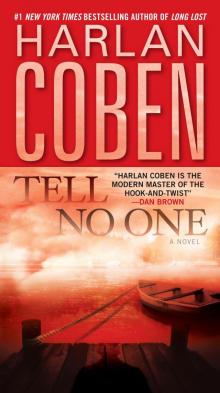 Tell No One
Tell No One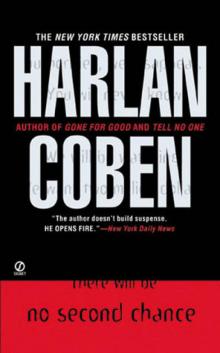 No Second Chance
No Second Chance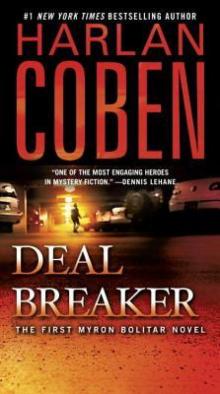 Deal Breaker
Deal Breaker Long Lost
Long Lost One False Move
One False Move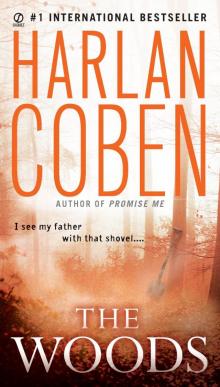 The Woods
The Woods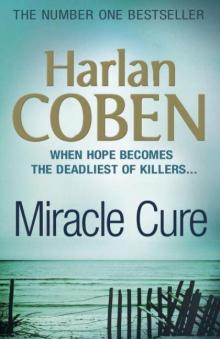 Miracle Cure
Miracle Cure Found
Found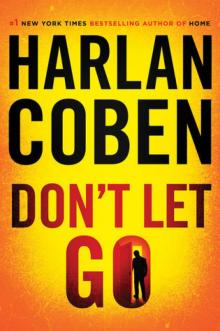 Don't Let Go
Don't Let Go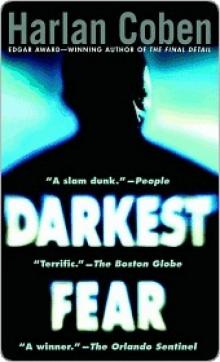 Darkest Fear
Darkest Fear The Stranger
The Stranger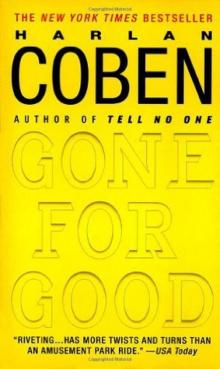 Gone for Good
Gone for Good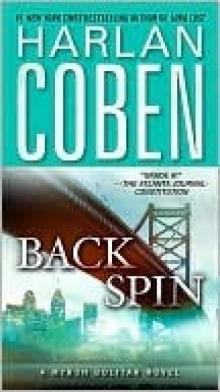 Back Spin
Back Spin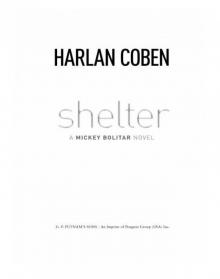 Shelter
Shelter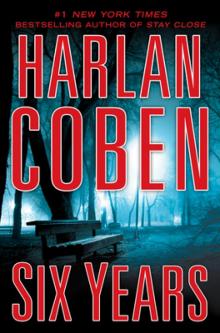 Six Years
Six Years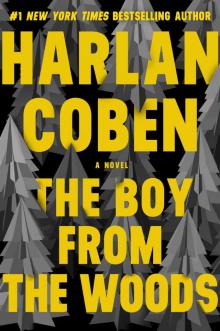 The Boy from the Woods
The Boy from the Woods Missing You
Missing You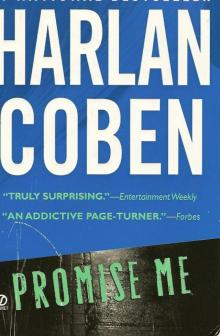 Promise Me mb-8
Promise Me mb-8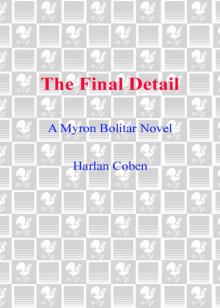 The Final Detail: A Myron Bolitar Novel
The Final Detail: A Myron Bolitar Novel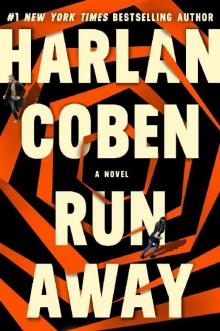 Run Away
Run Away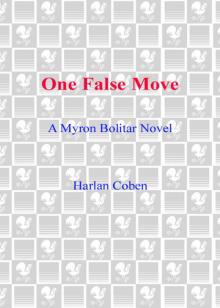 One False Move: A Myron Bolitar Novel
One False Move: A Myron Bolitar Novel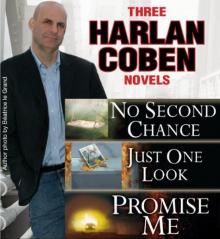 Three Harlan Coben Novels
Three Harlan Coben Novels the Woods (2007)
the Woods (2007) Tell No One (2001)
Tell No One (2001) the Innocent (2005)
the Innocent (2005)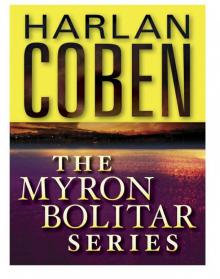 The Myron Bolitar Series 7-Book Bundle
The Myron Bolitar Series 7-Book Bundle Gone for Good (2002)
Gone for Good (2002) Caught (2010)
Caught (2010) Hold Tight (2008)
Hold Tight (2008)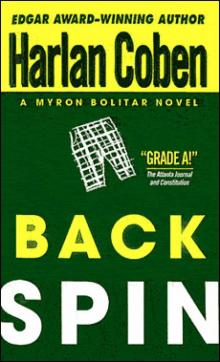 04 - Back Spin
04 - Back Spin Miracle Cure (1991)
Miracle Cure (1991) Harlan Coben 3 Novel Collection
Harlan Coben 3 Novel Collection Just One Look (2004)
Just One Look (2004)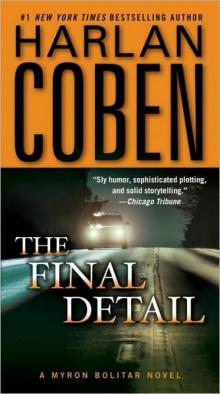 The Final Detail mb-6
The Final Detail mb-6 Play Dead (2010)
Play Dead (2010)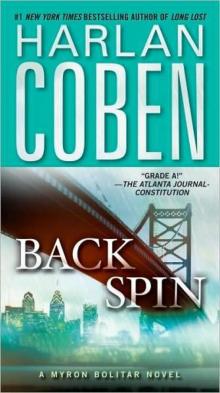 Back Spin mb-4
Back Spin mb-4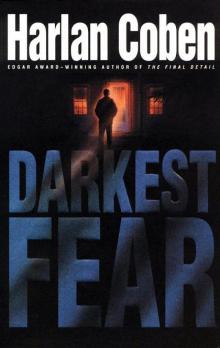 Darkest Fear mb-7
Darkest Fear mb-7